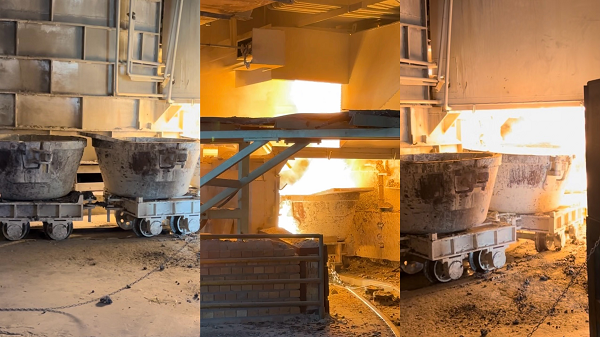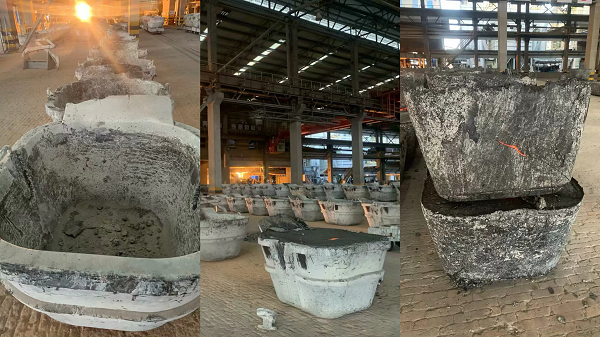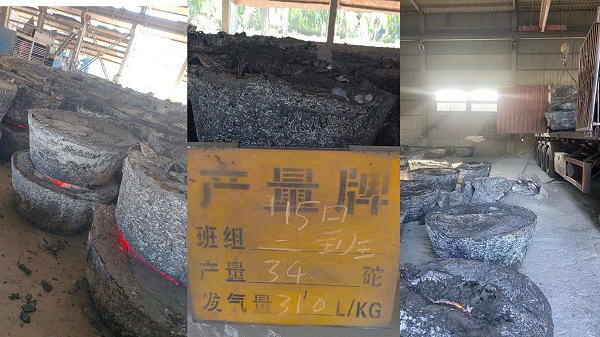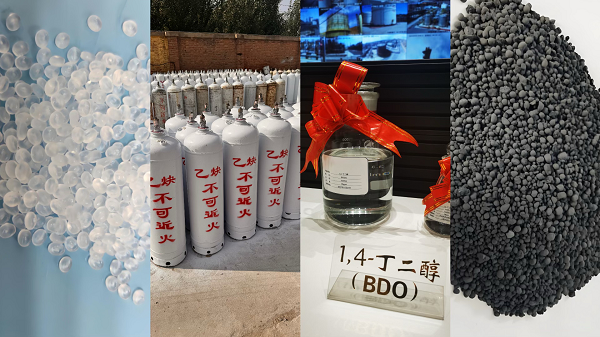
Calcium carbide is mainly produced by electric arc furnace melting method. Specifically, it involves mixing quicklime (CaO) and coke (C) in a certain proportion and adding them to a calcium carbide furnace. In a calcium carbide furnace, an electric arc is generated through electrodes, and the enormous heat released by the arc can cause the temperature inside the furnace to reach 2000-2200 ℃.In such a high-temperature environment, quicklime and coke react, with the chemical equation CaO+3C=CaC ₂+CO ↑, producing calcium carbide (calcium carbide) and carbon monoxide. The generated calcium carbide is in a molten state, and after the cooling process, the finished calcium carbide lump is obtained.

The quality of calcium carbide is mainly determined by the gas yield and impurity content. Gas yield is a key indicator for measuring the quality of calcium carbide. The reaction between calcium carbide and water produces Acetylene gas. The gas yield can be obtained by measuring the volume of acetylene gas produced after the complete reaction between calcium carbide and water per unit mass. The higher the gas yield, the better the quality of calcium carbide. In China, the gas yield of first grade calcium carbide is usually above 290L/kg.

Meanwhile, impurities in calcium carbide can affect its performance. Impurities such as Sulfur and Phosphorus can generate harmful gases such as hydrogen sulfide and phosphine when calcium carbide is used to produce acetylene. The lower the impurity content, the higher the quality of calcium carbide. The impurity content of high-quality calcium carbide should be within the range specified by national standards to reduce adverse effects on subsequent production and equipment.

Menghua Chemicals (MHCC) used calcium carbide gas yield is above 300L/Kg, and after processing and crushing, the gas yield still remains above 295L/kg. Moreover, the proportion of impurities in calcium carbide is relatively small. Currently, the calcium carbide sold by Menghua Chemical is mainly used for the production of PVC, Acetylene, 1,4-butanediol (BDO), and Calcium cyanamide in China, and its quality has been well received in the domestic market.
电石(碳化钙)主要是通过电弧炉熔炼法生产。具体来说,是将生石灰(CaO)和焦炭(C)按一定的比例混合后加入到电石炉中。在电石炉中,通过电极产生电弧,电弧释放出的巨大热量使得炉内温度可以达到2000 - 2200℃。在这样的高温环境下,生石灰和焦炭发生反应,化学方程式为CaO + 3C = CaC₂+ CO↑,生成碳化钙(电石)和一氧化碳。生成的电石呈熔融状态,经过冷却工序后,就得到了成品电石坨。
电石质量主要从发气量和杂质含量来鉴定。发气量是衡量电石质量的关键指标。电石与水反应会产生乙炔气体,通过测量单位质量电石与水完全反应后所产生乙炔气体的体积,就能得到发气量。发气量越高,说明电石质量越好。在国内一级品电石发气量通常在290L/kg以上。同时,电石中的杂质会影响其性能。如硫、磷等杂质,在电石用于生产乙炔时,这些杂质会生成硫化氢、磷化氢等有害气体。杂质含量越低,电石质量越高。优质电石的杂质含量应在国家标准规定的范围内,以减少对后续生产和设备的不良影响。
蒙化化学所采用的电石整坨发气量均在300以上,经过加工破碎后,发气量仍保持在295以上。且电石中的杂质比例较小,目前蒙化化学所销售的电石主要用于国内PVC、乙炔、1,4-丁二醇(BDO)、氰氨化钙等化工产品的生产,其品质在国内市场受到好评。
Contact: MengHua
Phone: 400 086 0473
E-mail: info@nmgmhcc.com
Whatsapp:+86 180 4736 6978
Add: No.405 ShuangYong Street,Haibowan District,Wuhai City,Inner Mongolia,China
We chat
